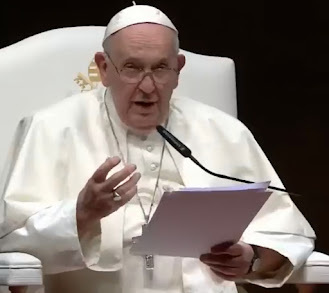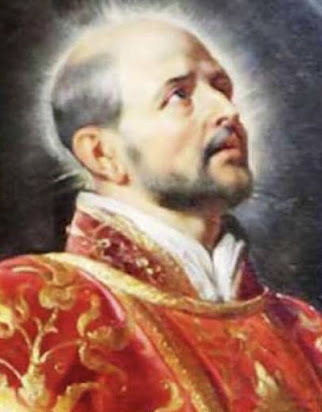John Janaro's Blog, page 49
August 13, 2023
Where is God’s Strength in My Weakness?
 Presently, I am lying in my bed, writing this on my iPad. I have spent a lot of time in my bed lately, taking the weight off pain, trying to “manage my discomfort,” or else just being exhausted. I have been ill most of this Summer. In addition to the usual periodic flare-ups of arthritis and myofascial pain, I seem to be afflicted by a mental exhaustion—and a kind of paralysis in communicating that has made writing more difficult and at times renders me perplexed even in speech.
Presently, I am lying in my bed, writing this on my iPad. I have spent a lot of time in my bed lately, taking the weight off pain, trying to “manage my discomfort,” or else just being exhausted. I have been ill most of this Summer. In addition to the usual periodic flare-ups of arthritis and myofascial pain, I seem to be afflicted by a mental exhaustion—and a kind of paralysis in communicating that has made writing more difficult and at times renders me perplexed even in speech.And, yes, I am forgetting things more and more. It may only be “brain fog,” but it’s more than usual.
Not much of this is surprising. My “mood” has been low, although on a deeper level I have a “joy” that has received great encouragement from the encounter of Pope Francis with young people at World Youth Day 2023 in Lisbon. There are, in fact, many things for me to rejoice about right now; some significant and wonderful things are happening in our family life. I’ll share more details on these things soon.
I haven’t done much with social media, other than sharing some artwork. I haven’t been posting links to my blog lately, although I have tried to keep writing all through July and August thus far. There are a some articles and also some useful resources, so I will have to find a way to “catch up” with my Facebook contacts and also on X (the site formerly known as Twitter). Ay ya yaiy, “X”!🙄 -
Ironically, my “right brain” (the creative side) has been engaged frequently by the ever-expanding visual techniques of AI, which I am determined to make use of—insofar as I am able—as a new kind of “material” out of which genuine forms of art may be fashioned. I don’t know how much success I have had thus far in making anything that is beautiful or evocative—it seems to me that I’m still in the midst of my “ten thousand hours” of learning a craft. In any case, even this work tires me out rapidly.
We have also had to wrestle with a series of very stressful circumstances this Summer regarding my wife’s work. For now, things appear to be resolved. But the stress of this ordeal was frequently intense, and I feel like it might have “taken a few years off” what’s left of my already-battered-up, overstressed, strange and unpredictable life.
I have lots to say about my East Asian Studies and Media Studies projects, but I haven’t been able to put anything “together.” But study slowly moves forward. My monthly column in Magnificat is torturous to write, and yet—as of now—I continue to write it and I continue to see its value even if it pushes me beyond my limits.
 Right now I’m living with a lot of weakness, and if there is strength offered or built up by anything I do, I cannot perceive it. I fear that I might be becoming languid and discouraged—but I think that the sense of purpose, the desire to press on, to live “for the glory of Christ” remains the motivation that prods and provokes me every day. Wherever I find the hindrances of my own peculiar afflictions—not to mention my ordinary human limitations and follies, distractions, rashness, fear, misjudgments—in other words, wherever I find the hindrances of my own weakness, I know that I can only offer this weakness. I can’t become discouraged because I see no purpose to it, no achievements springing forth from it. If God’s power is made perfect in weakness, it happens in mysterious ways that I believe are real even if I don’t see them (yet). Perhaps mostly it’s the Spirit’s power working to heal and transform—in His time—all my broken places, His work of making something new out of the train-wreak-of-a-human-being that I am after 60 years and 8 months of life.
Right now I’m living with a lot of weakness, and if there is strength offered or built up by anything I do, I cannot perceive it. I fear that I might be becoming languid and discouraged—but I think that the sense of purpose, the desire to press on, to live “for the glory of Christ” remains the motivation that prods and provokes me every day. Wherever I find the hindrances of my own peculiar afflictions—not to mention my ordinary human limitations and follies, distractions, rashness, fear, misjudgments—in other words, wherever I find the hindrances of my own weakness, I know that I can only offer this weakness. I can’t become discouraged because I see no purpose to it, no achievements springing forth from it. If God’s power is made perfect in weakness, it happens in mysterious ways that I believe are real even if I don’t see them (yet). Perhaps mostly it’s the Spirit’s power working to heal and transform—in His time—all my broken places, His work of making something new out of the train-wreak-of-a-human-being that I am after 60 years and 8 months of life.I pray for a deeper gratitude to God my Father—for everything, and for a greater compassion and mercy toward my brothers and sisters, near and far. I desire to be this way, and cannot make myself this way by my own power. Jesus, save me! Come Holy Spirit! I desire and I ask God. I try to walk in the darkness and I fall down. To get up and try again, I need Him to increase my desire and my plea for mercy. I am totally poor in myself. I am a “need,” a cry for mercy that is nevertheless full of hope because He is here. Jesus. He has come to be with us and walk with us. This is what matters.
Okay, I’m really tired now.
August 12, 2023
“These Last Strands of Man in Me…”
 “Not, I'll not, carrion comfort, Despair, not feast on thee;
“Not, I'll not, carrion comfort, Despair, not feast on thee;Not untwist—slack they may be—these last strands of man
In me ór, most weary, cry I can no more. I can;
Can something, hope, wish day come, not choose not to be.”
~Gerard Manley Hopkins (Poem 40, Stanza 1)
Not without reason is this poem (usually titled “Carrion Comfort”) regarded as one Hopkins’s greatest. It has more depths in the ensuing stanzas, but I find a resonance with this first one in this moment. These are words that speak at the extremity of desperation, where the poet discovers something more fundamental in the core of the heart: the desire for be-ing, all the more vivid through his exhausted negative expression.
Our being is a gift and a promise, and even in our darkest moments, they draw us to endurance. The One who gives us being gives us also the seemingly fragile tenacity that is in fact a supernatural strength. It empowers our freedom to embrace hope and stand firm against despair, to “not choose not to be.” .
This is the only reasonable position for a human being on the journey of life (and we recognize that many people who take their own lives do so because their reason is blocked or distorted by psychological pathology). The reasonable position of our hearts is to never give up.

August 10, 2023
Sain Lawrence the Martyr

This is a poem I wrote 33 years ago in honor of Saint Lawrence, the young third century deacon and martyr of the Church of Rome, who was killed slowly by being “broiled” by the flames of a grill.
Lawrence died for his faith in Christ during the persecution of the Emperor Valerian on August 10 in the year 258 A.D. He has always been especially loved by the people of Rome to this day.
Martyr
by John Janaro
…………………………………………………………………………
A blood-red ember-glowgrows
to a fullness within my breast
as though Mars had been captured in glass,
removed from the dome of moonlit sky,
and set free below to frolic among dry sticks
at the woodland's edge.
Mars, of war.
And I am flame that rises like a fountain
from a candlewick consumed
and a raging river of fragrant wax,
and my effulgence fires the eyes of those who watch
and of those who keep their distance.
In a moment I am gone,
yielding to triumphant dawn
like the pink streaks of morning's first light,
and in the wake of my radiance
ashes
to color the hand of man.
~August 10, 1990
August 9, 2023
“The Invention of Fire”
August 7, 2023
Gestures and Simple Words of Mercy
In this past week of beautiful days in Portugal, Jesus touched the hearts of young people from all over the world, not through momentous speeches or grand spectacles, but through an encounter with His presence in the Church today—experienced in a special way through the charity, attentiveness, and solidarity of Pope Francis, the Bishop of Rome, the Successor of Saint Peter, the Servant of the Servants of God.
Francis communicated the Gospel through countless simple gestures of mercy and compassion, and in his brief and direct words witnessing to Christ’s arms open to everyone, calling everyone to the Lord’s healing and transforming embrace. “Take heart, do not be afraid.”


August 6, 2023
The Transfiguration: Jesus Gives Us Courage

The World Youth Day festival concluded today with Pope Francis gathering with over a million people in Lisbon, at a park near the shore of the Atlantic Ocean, for the Sunday Mass on this day which is also the feast of the Transfiguration.
In his homily, the Pope encouraged them—and all of us—to shine with the light of Christ, to listen to God’s call, and to take courage in following Him, because He knows us, addresses us personally, and loves us with an intimate personal love by which He leads us on the path to salvation.
“Dear young people,I would like to look each of you in the eye
and say to you:
do not be afraid, do not be afraid.
What's more, I'll tell you a beautiful thing.
It is no longer I, it is Jesus himself who looks at you now.
He looks at you, He who knows you,
knows the heart of each of you,
knows the life of each of you,
knows the joys, knows the sorrows, the successes and failures,
knows your heart.
And today He says to you, here, in Lisbon, on this World Youth Day:
'Do not be afraid, do not be afraid, courage, do not be afraid!'”
~Pope Francis, Homily, August 6, 2023

“When Christ appears we shall be like Him, for we shall see Him as He is” (cf. 1 John 3:2). —Communion Antiphon for the Feast of the Transfiguration.

August 5, 2023
Pope Francis Returns to Fatima

[The Vatican media broadcast with multiple cameras of the Pope praying at Fatima’s chapel of apparitions provided a moment for this moving “blend” of images captured in a screenshot.]
During this week of encounters in Portugal with young people from all over the world, Pope Francis—in speaking so radically about God’s love—has emphasized its concreteness in the sacrifice of Jesus Christ, the Word made flesh in the womb of the Virgin Mary: “God loves us as we are, not how we want to be or how society wants us to be. As we are! He calls us with our faults and failings, our limitations and our hopes in life. That is how God calls us. Trust, because God is a Father and a Father who loves us. This is not very easy. And for this reason we need a great help, the Mother of the Lord. She is our Mother too. She is our Mother.”
This morning, the Pope traveled north of Lisbon, to visit for the second time the Shrine of Our Lady of Fatima (his first visit was in 2017). He prayed the Rosary with a group of disabled people and some 200,000 pilgrims. Francis undoubtedly bore in his heart in a special way the ongoing and increasing suffering of so many people due to the war in Ukraine, as well as the many other wars throughout the world. He didn’t read his prepared address, however, speaking only a few words informally after the Rosary. The event as a whole seemed to express its profundity in its simplicity, prayer, and silence.
Pope Francis knows well the connection between Mary’s prophetic appearances at Fatima in 1917 and the catastrophic world wars of the 20th century—the consequences of which continue to imperil the world even to this day. He consecrated Russia and Ukraine to the Immaculate Heart of Mary on March 25, 2022. Attentive to the message of Fatima, the Pope emphasizes that war is born from sin, and exposes the horrendous violence and destructive power of sin. Peace can only come from the heart, as the fruit of repentance in faith and love.
In his brief remarks after the Rosary, Francis stressed that “Mary made herself present here [at Fatima] in a special way, so that the disbelief of so many hearts would open up to Jesus—with her presence she points us to Jesus.” The Pope continues to place his hope for peace in the love of the Hearts of Jesus and Mary, the grace of the conversion of our hearts, and the love for one another that will enable dialogue, empower creativity in the ways of reconciliation, and bring justice, healing, and fraternity beyond what we can now imagine.
Shortly after the service, Vatican Media posted a prayer from Pope Francis’s written text, as a confirmation of what he carried in the silence of his heart to Mary’s heart at Fatima.

August 4, 2023
Pope Francis to Youth: “God Called You By Name”

Here are some selections from Pope Francis’s first encounter with young people from all over the world who have gathered in Lisbon, Portugal during the first week of August 2023 for World Youth Day. The translation is from the Vatican’s website:
“You are not here by accident. The Lord has called you, not only in these days, but from the very beginning of your days. He called you by name…
“Think of this: Jesus called me by name. His words are inscribed in our hearts, and we come to realize that they are written in the hearts of every one of us, as a kind of title that tells people who we are, who you are. You have been called by name.
“None of us is a Christian by chance; all of us were called by name. At the beginning of the story of our lives, before any talents we may have, before any shadows or wounds we may be carrying in our hearts, we were called. Why? Because we are loved.
“This is something beautiful. In God’s eyes, we are precious children, and he calls us each day in order to embrace and encourage us, to make of us a unique and original masterpiece. Each of us is an “original”, whose beauty we can only begin to glimpse…
[This] “means that for God none of us is a number, but a face and a heart. I would like each of you to remember that many people know your name, yet they do not call you by name. Certainly your name is known, it appears on social networks and is processed by algorithms that associate it with likes and preferences, all of which is useful for market research, yet it does not begin to approach you in your uniqueness. How many wolves hide behind smiles of false goodness, saying that they know you, though they do not love you. They insist that they believe in you and promise that you will become someone, but then abandon you when you no longer matter…
“We must be careful not to let ourselves be deceived, for many realities that attract us and promise happiness are later shown to be what they really are: soap bubbles, superfluous things that we don’t need and that leave us empty inside. Let me tell you: Jesus is not like that. He trusts you, each of you, each of us, because each of us matters to him, each one of you matters to him. That is how Jesus is.
 “That is why we, his Church, are the community of those who are called: not of people who are better than others – no, absolutely not – but of sinners, called as such. Let us think seriously for a moment about that: we are called as we are, with our problems and limitations, our overflowing joy, our desire to be better and to get ahead in this world. We are called as we are. Think of this: Jesus calls me as I am, not as I would like to be. We are the community of brothers and sisters of Jesus, sons and daughters of the same Father.
“That is why we, his Church, are the community of those who are called: not of people who are better than others – no, absolutely not – but of sinners, called as such. Let us think seriously for a moment about that: we are called as we are, with our problems and limitations, our overflowing joy, our desire to be better and to get ahead in this world. We are called as we are. Think of this: Jesus calls me as I am, not as I would like to be. We are the community of brothers and sisters of Jesus, sons and daughters of the same Father.“Friends, I want to be clear with you, for you are allergic to falsity and empty words: in the Church, there is room for everyone. Everyone. In the Church, no one is left out or left over. There is room for everyone. Just the way we are. Everyone.
“Jesus says this clearly. When he sends the apostles to invite people to the banquet which a man had prepared, he tells them: ‘Go out and bring in everyone’, young and old, healthy and infirm, righteous and sinners... The Lord does not point a finger, but opens his arms... He shows us Jesus on the cross, who opened his arms wide in order to be crucified and die for us.
“Jesus never closes the door, never, but invites you to enter: come and see. Jesus receives, Jesus welcomes. In these days, each of us transmits the love of Jesus. God loves you. God calls you. How lovely this is! God loves me. God calls me. He wants me to be close to him.”
August 2, 2023
Pope Francis Arrives in Portugal for Youth Festival
 Pope Francis addressed Portuguese government officials upon his arrival for the World Youth Day 2023 Festival. Among his many remarks, the Pope emphasized once again the need for inter-generational bonds, for the importance of the elderly, of our grandparents. Interpersonal and cultural “wealth” is more important than the multiplication of “disposable” consumer goods. In a “throwaway culture,” the the value of the elderly finds no place.
Pope Francis addressed Portuguese government officials upon his arrival for the World Youth Day 2023 Festival. Among his many remarks, the Pope emphasized once again the need for inter-generational bonds, for the importance of the elderly, of our grandparents. Interpersonal and cultural “wealth” is more important than the multiplication of “disposable” consumer goods. In a “throwaway culture,” the the value of the elderly finds no place.“We need to resume a dialogue between young and old…. The young must find their roots in the elders. Here, education is essential: an education that does not simply impart technical knowledge directed to economic growth, but aims to make the young part of a history, to pass on a tradition, to value our religious dimension and needs, and to favour social friendship” (Pope Francis, August 2, 2023).
July 31, 2023
The Beginnings of Ignatius Loyola’s Great Mission
 There are many wonderful stories from the life of Saint Ignatius Loyola (July 31) as he followed the Lord’s call (together with his earliest companions) to found and foster the emergence of a singular missionary charism in the life of the Church: the Society of Jesus.
There are many wonderful stories from the life of Saint Ignatius Loyola (July 31) as he followed the Lord’s call (together with his earliest companions) to found and foster the emergence of a singular missionary charism in the life of the Church: the Society of Jesus. It all began within the heart of Ignatius, as the Holy Spirit drew him from the ambitions of a worldly life to a total commitment to follow Christ. Here is the text of my column on Saint Ignatius that appeared in the May 2014 issue of Magnificat.
The “great conversion story” of Saint Ignatius is well known. An element that deserves more attention, however, is the vital human connection between the wounded soldier destined to found the Jesuits and a medieval Carthusian’s witness to the Person of Christ. Born in 1491, Ignatius was the youngest son of a noble family in the Basque region of Spain. With a passion for earthly glory, he became a soldier in the armies of Castile, and was seriously wounded by a cannonball in May of 1521. During a long recovery, he became bored, and asked for books of chivalrous tales to pass the time. But the only books available were “saints’ lives” and “a life of Christ.” Having nothing better to do, he began to peruse these books. It was there, in his bed, that he encountered Jesus Christ, and the extraordinary change in his life began.
The saints inspired Ignatius. He found his Catholic faith incarnated in the stories of heroic men such as Saint Francis and Saint Dominic. His ambition began to change, slowly, as he felt the aspiration to “compete” with the saints for this new ideal of holiness. The witness of the communion of saints began to shine for him. Most importantly, however, he read and pondered for the first time the events of the life of Jesus. Ignatius did not read the New Testament in 1521, for it did not exist in Spanish translation. What he was given to read was a most extraordinary four volume “Life of Christ” by a 14th century Carthusian hermit, Ludolph of Saxony.
Ludolph takes up the Gospel stories methodically, following the events from the Annunciation to the Nativity and infancy, to the Baptism of Jesus, His Public Life and ministry, His Passion, Resurrection, and Ascension, and onward to the Final Judgment. Each event receives copious attention with Ludolph drawing on Scripture and the Church Fathers to illuminate its meaning. Ludolph’s method is to lead the reader to place himself “inside” the particular events. He gives rich imaginative descriptions and exhorts his reader to “look” at the details, consider their significance and embrace the grace of a prayerful encounter with Christ. The fruit of his own contemplative life became a written witness to the Person of Christ that could be shared. .
But Ludolph’s image-rich meditations were destined to have an audience he could never have imagined. A century after his death came the printing press. Suddenly, the hermit was translated into several vernacular languages (including Spanish, at the express request of Queen Isabel) and widely distributed among pious people all over Europe (including the sister-in-law of Ignatius, who brought it to his bedside in 1521).
Ludolph’s witness led Ignatius to grow more and more in love with Christ. Ignatius took some three hundred pages of notes on the text, and there is no doubt that this medieval monk inspired Ignatius in the formation of his own great instrument for bringing people to a deeper relationship with Jesus, the Spiritual Exercises.
Saint Ignatius of Loyola had many other encounters that shaped his own vocation, but it was on his sickbed that he met Christ, and it was the witness and work of saints and holy people that originated his own witness with its enormous fruits for the coming epoch.




